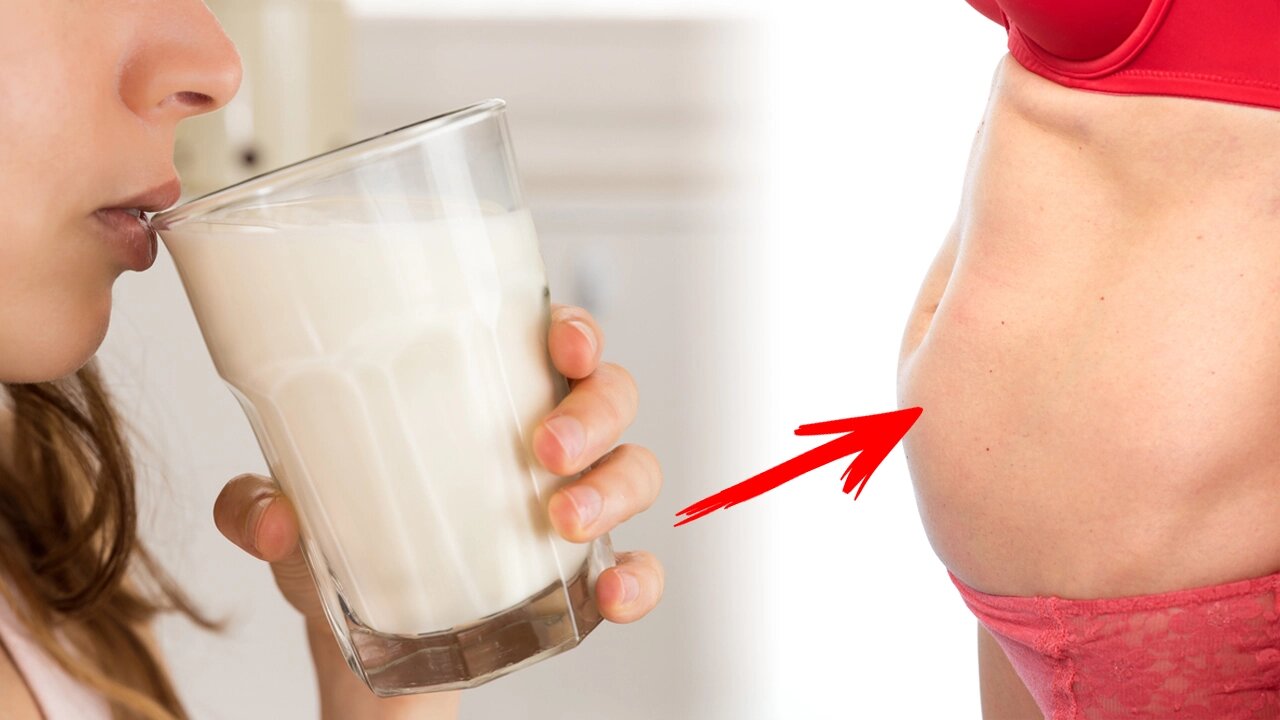Premium Only Content

Natural Ways to Deal with Lactose Intolerance
Milk is a common household ingredient around the world. However, there are hundreds of millions of people that are not able to process or digest the lactose that is contained in the milk. More than half of the world’s population has some type of lactose intolerance, though, they may not show symptoms of it.
Those that suffer from a mild form of lactose intolerance can manage the symptoms without having to do without dairy or milk. However, they will likely experience mild indigestion that would normally cause them to consume less dairy less often.
Luckily, there are several ways for those that suffer from lactose intolerance to get relief and strengthen their body’s ability to process lactose. Some of those remedies include:
Consume Lactase
Lactose intolerance is caused by a deficiency in lactase, which is necessary to break down lactose. Therefore, adding lactase to your diet can be very beneficial. This can be purchased in a drug store and added to your dairy products, such as milk.
Educate Yourself
Many people may be aware that they are lactose intolerant, but they may not be aware of all the foods that contain lactose, such as salad dressings, pancakes, candy, soups, and hot dogs. It is important to read food labels and educate yourself of the ingredients that you are consuming.
Know Your Body
Every person in the world has some sort of intolerance to certain foods. Therefore, it is important to know your body and how your body responds to ingredients. If you have a lactose intolerance, you will be able to discover what your limit for dairy food is.
Shrink Your Portions
Quite often, if you are only mildly lactose intolerant, you can control your symptoms by shrinking the size of your dairy portions.
Ginger
If you are lactose intolerant but you decide that you would like to have a meal containing dairy, keep ginger by your side. Ginger can settle an uneasy stomach, reduce cramping and nausea, and help with digestion.
Alternate Nutrient Sources
One issue those that have lactose intolerance suffer from is the inability to get proper nutrients, particularly calcium and Vitamin D. It will be important to consume calcium-rich foods, such as nuts, seeds, dried fruit, beans, and leafy greens.
Kefir
Kefir is a milk alternative that does not contain lactose. Instead, it contains live active cultures, or probiotics, that help with digestion. This product can even improve your body’s ability to process lactose better.
Chamomile Tea
Like ginger, chamomile tea has been widely used to settle an uneasy stomach. It neutralizes stomach acid, soothes your mind and body, and helps to relieve any discomfort.
Yogurt and Hard Cheese
Like Kefir, yogurt and hard cheese contain live active cultures and lower levels of lactose. The probiotics help your body to break down the lactose sugars.
Milk Substitutes
You can find many types of milk substitutes in the grocery store that do not contain lactose, but still contain essential nutrients that our body needs. These substitutes include: soy milk, almond milk, coconut milk and hemp milk.
Apple Cider Vinegar
Often, those that suffer from a mild form of lactose intolerance can manage their symptoms by adding apple cider vinegar to their diet. Apple cider vinegar provides the stomach with a coating to soothe any discomfort and help with digestion.
Lactose intolerance isn’t usually dangerous, but on-going discomfort in your stomach can weaken your ability to fight off harmful toxins. If it continues to bother you, consult with your doctor for additional treatments. You do not want to put continuous stress on your body by constantly feeling sick, vomiting, or having diarrhea.
Facebook: https://bit.ly/38BWbw3
Pinterest: https://bit.ly/2Irvwa6
Disclaimer: The materials and the information contained on Natural Cures channel are provided for general and educational purposes only and do not constitute any legal, medical or other professional advice on any subject matter. These statements have not been evaluated by the FDA and are not intended to diagnose, treat or cure any disease. Always seek the advice of your physician or other qualified health provider prior to starting any new diet or treatment and with any questions you may have regarding a medical condition. If you have or suspect that you have a medical problem, promptly contact your health care provider.
-
 4:11
4:11
Natural Cures
1 year ago $1.01 earned7 Proven Foods to Unclog Arteries Naturally
3.68K -
 1:01:50
1:01:50
In The Litter Box w/ Jewels & Catturd
1 day ago1 TRILLION! | In the Litter Box w/ Jewels & Catturd – Ep. 733 – 2/3/2025
34.8K25 -
 1:38:44
1:38:44
The Quartering
4 hours agoTrump's Tariffs Already Work, Blackhawk Pilot Coverup, DNC Makes Insane David Hogg Appointment
70K61 -
 LIVE
LIVE
Dr Disrespect
6 hours ago🔴LIVE - DR DISRESPECT - TARKOV - ZERO TO HERO RAIDS ONLY
3,629 watching -
 1:13:51
1:13:51
Candace Show Podcast
4 hours agoEXCLUSIVE! Did Ryan Reynolds Extort Hollywood Execs? | Candace Ep 143
77.3K90 -
 2:01:42
2:01:42
Darkhorse Podcast
4 hours agoThe 263rd Evolutionary Lens with Bret Weinstein and Heather Heying
17.4K10 -
 9:37
9:37
Silver Dragons
3 hours agoGoodbye Cheap Silver - How the Tariffs Will Change Stacking Forever
9.44K -
 37:33
37:33
CryptoWendyO
3 hours ago $1.94 earnedWORST DAY IN CRYPTO HISTORY $10 Billion in Liquidations!
24K7 -
 57:01
57:01
PMG
4 hours ago $1.27 earnedHannah Faulkner and Dr. Bryan Ardis | Don't Fall For the Bird Flu!!!
17.3K -
 1:18:00
1:18:00
Russell Brand
1 day agoUFOs, Whistleblowers, and Government Lies – The Truth with Jeremy Corbell – SF530
193K89